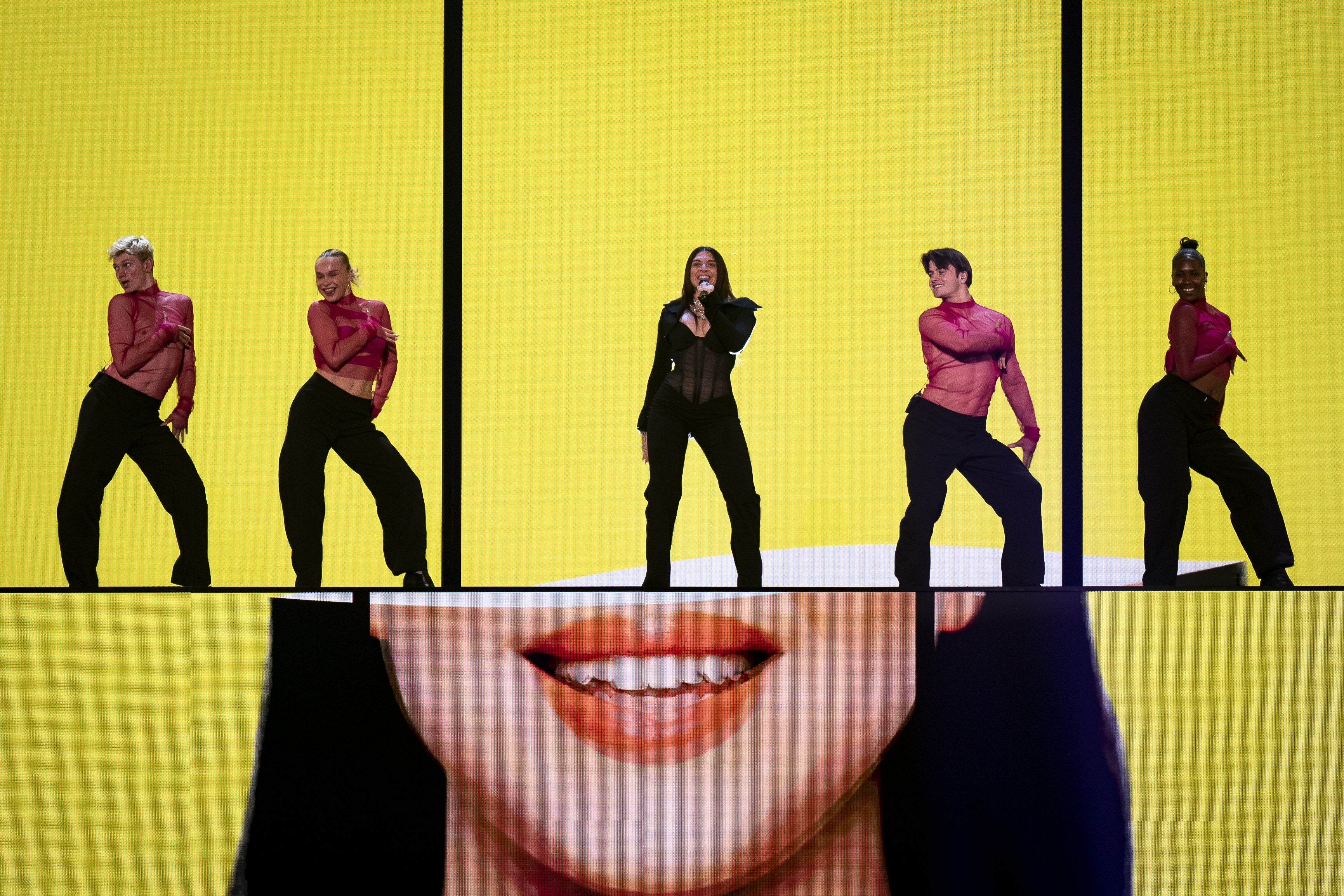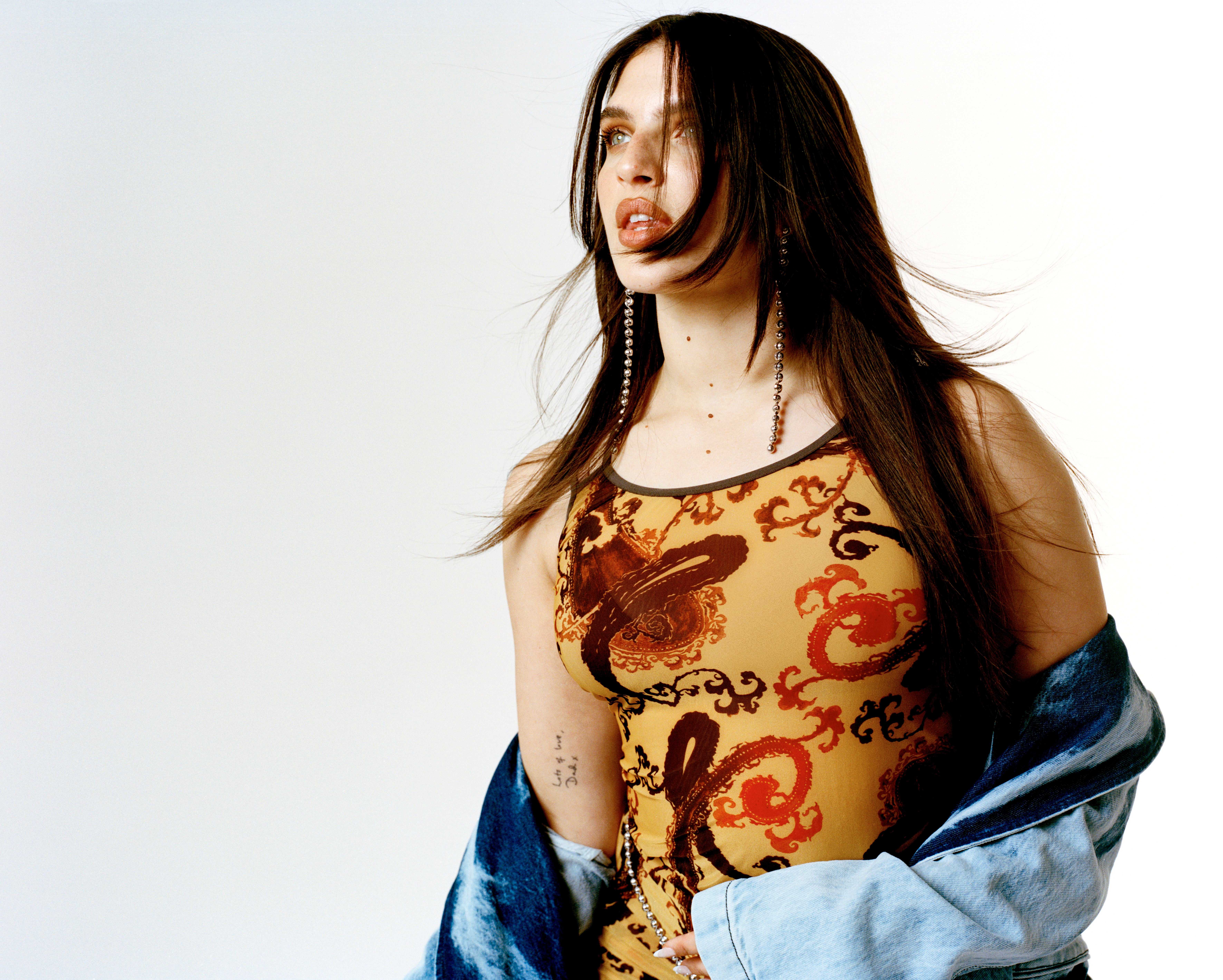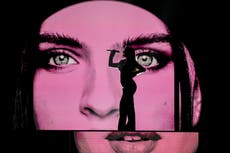Mae Muller: ‘Eurovision 2023 is the year of the pop girlies!’
Following Sam Ryder’s Eurovision success last year, Mae Muller is the artist hoping to continue the UK’s high-scoring streak in Liverpool. She talks to Isobel Lewis about novelty acts, criticising the Tories and why the wacky song contest is finally being taken seriously


When Mae Muller was seven years old, she wrote a song. No, not the song that would eventually represent the UK in the 2023 Eurovision Song Contest, but a Florence and the Machine-esque ballad about her childhood crush. “I found the diary I wrote it in and it’s hilarious,” she tells me from a hotel room in Liverpool where she will soon take the stage in front of millions. “I thought I was embodying Florence and I was writing about my ‘boyfriend’ that would turn into a werewolf in the middle of the night.” She may have been a child, but Muller understood the importance of artistic licence even then. “Who had a boyfriend at seven years old? Definitely not me.”
Besides that ode-to-a-werewolf from her youth, Muller wasn’t your average stroppy teen channelling angst into songwriting. In fact, the north Londoner has said she was a relatively “late bloomer”, only beginning to set her thoughts to music when she was 19, releasing demos on SoundCloud while pulling pints in a pub. It was another six years before she penned “I Wrote A Song”, the uber-catchy dance-pop hit she hopes will take the UK to Eurovision victory on Saturday night. Hear it, with its Dua Lipa-like melodies and resolutely buoyant chorus, and you’ll never cry over a cheating ex again. Or at least for a while.
We’re in the middle of Eurovision week and the 25-year-old is unbelievably upbeat, despite her hectic schedule. Speaking to her feels like gossiping with an old friend; her patchwork mesh top is as bright as her disposition. She gesticulates wildly, her long, crystal-encrusted stiletto nails slicing the air like blades. When Muller came up with “I Wrote A Song”, she didn’t know Eurovision was on the cards. Days later, the topic was raised, and everything clicked into place – a little too perfectly, if anything. “I was like, ‘This is the weirdest thing guys because I feel like I’ve just written a Eurovision bop three days ago,’” she recalls.
Growing up in Kentish Town, Muller was fed a musical diet of Abba and James Brown. Her first gig was a family-friendly concert from the techno duo Lemon Jelly (“They were dressed as the Flintstones; it was quite trippy!”). As she got older, Muller was drawn to powerful female artists such as Florence and the Machine, Lily Allen and Amy Winehouse. When she supported Little Mix on tour in 2019, she saw the power of the female popstar up close and gained her own loyal fanbase of young women in the process.
Eurovision has changed everything. It’s not just girls who know Muller; middle-aged blokes are wishing her luck in the street, too. Last year, silky-haired TikTok star Sam Ryder rocketed the UK from 2021’s nul points nightmare to runner-up position, leading the country to host on behalf of the winners Ukraine who are unable to do so due to their ongoing war with Russia. For the first time in decades, the UK has allowed itself to be optimistic about Eurovision. Well, as optimistic as we Brits can ever be.
For the Noughties Eurovision singers of Muller’s youth, this wasn’t quite the case. She enjoyed the UK’s low-scoring novelty acts, and today, we bond over a totally inappropriate childhood love of the 2007 innuendo-filled airline parody Scooch. “It’s always been fun, but now I feel like it’s even more fun because people are taking it more seriously,” she says. “I’m really happy to see that the tides are changing and I think a lot of that is down to Sam.”

Muller is the first woman to represent the UK in five years, a not insignificant milestone in a competition dominated by female powerhouses. Sweden’s 2012 champion Loreen, responsible for one of the biggest Eurovision songs of all time in the form of “Euphoria”, is back as the bookies’ favourite to win, while Vesna (Czechia) and Alessandra (Norway) are competing with empowerment anthems about being a woman. Muller, naturally, is delighted. “Oh my gosh, it’s the year of the pop girlies!” she grins. “I feel like as women in the music industry, you’re up against each other and there’s this sense of competitiveness, sometimes, which actually is really not needed.”
While it is no doubt exciting that Eurovision is taking place on home soil for the first time since 1998, the knowledge that this should have been Ukraine’s year to host hangs heavy in the air. It’s impossible to ignore. Eurovision is an ostensibly apolitical event, and “obviously you have to respect how it works and what you sign up for,” Muller says. “But I think it’s impossible not to not talk about it. We are hosting on behalf of Ukraine because they can’t over there because there’s a war going on – I think that’s OK to speak about.”

As a young woman, Muller says free speech is “something that we can’t ever take for granted”. In March, resurfaced tweets in which she criticised the Tory government’s Covid policies became front-page news, earning criticism from the right. As we speak, there are headlines taking her words out of context, proclaiming that Muller “hates” Britain, an allegation she categorically denies. “I love this country, and I wouldn’t represent it if I didn’t. I love where I’m from… I love how inclusive and diverse it is, but nowhere’s perfect,” she says. “When you love something, you want it to be better”. At the time of her posts, the people in the UK “weren’t getting the best treatment and that’s something that I care about”.
The last two months of Muller’s life (really, her entire career) have been a whirlwind, all leading up to Saturday’s grand final. How will she be spending Sunday, once the dust settles? Muller looks a little bewildered. It’s clear she hasn’t thought about it. “I guess I’ll be sleeping in my own bed on Sunday night, so I don’t know what I’m gonna do. Have a lie-in…? Stare at a wall for a couple of hours and take it all in?” A member of her team whispers something off-camera. “Oh no, I’m signing CDs, apparently,” Muller says, chipper once again. “No rest for the wicked!”
Join our commenting forum
Join thought-provoking conversations, follow other Independent readers and see their replies
Comments


Bookmark popover
Removed from bookmarks